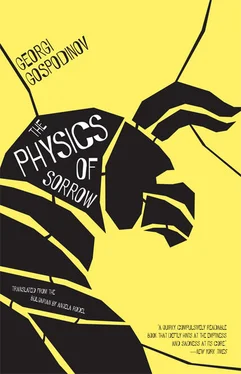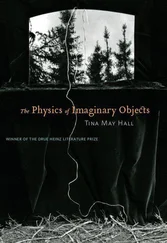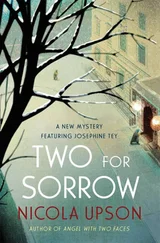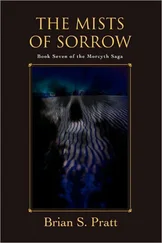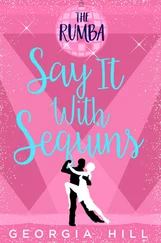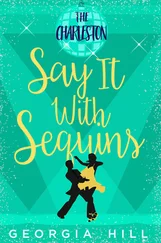Something gives me a good hard shake and pulls me back down those dark corridors — light, words, my father’s face. What’s wrong. What’s wrong. I’ve been trying to wake you for ten minutes now.
I feel bruised from the journey. Everything’s fine, Dad, I’m here. I was born to my own mother, what a miracle.
My father dragged me out, before I managed to see whether there was someone else there, if someone else came out after me. I was left with the uncertain feeling that I wasn’t alone in that cave.
I was born to my own mother and father, but that doesn’t make me any less a Minotaur. I continued spending long days alone, at the window, paging through a book.
NIPPERS
Just as in antiquity, the children of socialism were also invisible. Little nippers hanging around at the grown ups’ feet. Prepared for life, without entirely being a part of it.
Run down to the cellar for some pickles! Go and play in the other room, we’re talking to our guests! Hightail it out of here, I’ve got work to do! Don’t make me start up the spanking factory. Patriarchy and industrialization rolled into one.
Three months at the village every summer, with their grandmothers, in the fresh air and sunshine, to get toughened up, drink milk straight from the sheep, and eat raw eggs. You take a warm egg out from under the chicken, your grandma wipes it on her apron, pokes a hole in it with a thick needle, sprinkles a little salt inside and you suck it up through the hole with all your might under her fond gaze. Drink up, drink up, an egg is equal to a shot, she would say. That’s what some famous doctor who had passed through the village thirty years ago and had spent the night had said. One egg, he said, is equal to a shot, take it from me.
I would find out much later that this pedagogical regimen of “fresh air and sunshine” was also crucial for German children of the 1930s, so they would grow up healthy, energetic and in fine fighting form. I wonder if they stuffed them full of raw eggs, too?
While rereading ancient Greek myths from that already dog-eared book on those endless summer afternoons, I made the following discovery. Zeus turned out to be exactly like us from the late 1970s. A child sent deep into the countryside, to be looked after by his grandmother Gaia (and kept far from his father), to drink goat’s milk (his goat was divine, of course), and to grow up hale and hearty.
I will always remember milk from an ordinary mortal sheep, straight from the udder and still warm, with a few shiny turds floating in it, to be blown off to the side with the foam. Only in childhood is immortality possible. Perhaps because of that milk and the raw eggs.
But there’s a very slow, creeping fear, too. I’ve been abandoned. They’ve left me here, they’ve gone back to the city, they’re gone.
MOTHER BEAN
Mother Bean had a green body and two little beans for eyes. We were really afraid of her. Don’t go into the bean patch, my grandma would holler when she saw us in the garden, or Mother Bean will come after you! We never did see her, but she was always in the back of our minds as we carefully skirted the rows planted with beans.
In the vineyard, on the other hand, lived Mother Vine, guarding her children. For that reason we didn’t dare trample through the rows, snitching grapes left and right.
Once my grandma caught us committing true genocide on a colony of red ants that was crawling across the paving stones in front of the house. Then we heard about Mother Ant for the first time, huge and with sharp claws yea big.
Everything had a mother, only we didn’t. We had grandmothers.
THE MINOTAUR SYNDROME
The 1970s. Our mothers were young, studying — first, second, third year, working — first, second, third shift. We were there in the empty apartments, ground floors, basements, lost in boredom and fear, roaming amid the vague anxieties of the one left on his own. Is there a Minotaur Syndrome?
I didn’t have fish, a cat, a turtle, or a parrot, because that was the last thing we needed, as my mother wisely noted. In any case, we were constantly moving to new rental apartments, awaiting the great day when we would receive an apartment of our own. The only thing I had was Laika, the dog, whose homeless soul was howling through the cosmos. And my brother, the Minotaur. They lived illegally in my five square meters of living space, invisible to my mother and father, and to the landlords.
A PRIVATE HISTORY OF THE 1980S
And then.
A History of Boredom in the 1980s needs to be written. This is the decade that produced the most boredom. The afternoon of the century.
When I heard the word “boredom” for the first time, I was six and felt anxious because I didn’t know what it was. You must be bored being alone all day, one of the neighbors, Auntie Pepa, said to me. I imagined it as a slight illness, some sort of malaise, like a stuffy nose, a cold, or an allergy to poplar fluff. That’s why I answered evasively: uh no, nothing’s wrong, I’m fine. Where I came from, boredom was unheard of, they never used the word. There was always something that needed doing, the animals would never let it take root, they would mow it down as soon as it cropped up. But here, in the town of T., it thrived everywhere. It shimmered like a haze above the hot asphalt, chipped away at the houses’ fading ochre, lulled the sunflower-seed hawker to sleep in the shade of the park, purred like a cat or brought on one of the deafening sneezing fits of Uncle Kosta from across the street.
Catalogue of Collections
Napkins
Empty packs of cigarettes
Matchboxes
Pins and stamps
Pocket calendars
Winking postcards
Wrappers from imported candies, paper and tinfoil
Wrappers from chocolate bars, paper and tinfoil
Gum wrappers (minus the gum)
Empty bottles of whiskey, cognac, Campari.
Clearly, the things in this collection are abandoned, empty, used up. Somebody has smoked Marlboro Reds and Rothmans Blues, eaten imported chocolate candies, chewed some gum, and downed a Metaxa brandy. Only a few bottles, boxes, and wrappers are left for us. The collectors of emptinesses and abandonments.
There’s my first cassette tape player, a Hitachi mono, we bought it from some Vietnamese people in exchange for my grandfather’s old donkey. To the very end, my grandpa thought it was a bit like trading a horse for a chicken, as the saying goes. The horse being the donkey, and the chicken — the tape player.
Our history and literature textbooks — we got a kick out of adding finishing touches to the painfully familiar photographs inside. A moustache and a pirate’s skull cap on top of the general secretary of the communist party’s head, which was a round and bald as an egg. And on the poet-revolutionary Hristo Botev’s heroic face — may the gods of literature forgive me! — I drew round, John Lennon-style glasses. The glasses completely transformed the fearsome Botev into a slightly bewildered, bearded hippie of Bulgarian revolutions, which are as a rule unsuccessful.
The world was simple and ordered, simply ordered. On Wednesday — fish, on Friday — Russian TV.
In East German cowboy movies, the redskins were the good guys, the proletariat of sorts, since they were the reds.
The television listing for Monday, November 18, 1973 or 1983 (it’s not clear from the scrap of newspaper):

17:30 — Discussion of decisions made by the July Plenum of the Central Committee of the Bulgarian Communist Party. 18:00 — News. 18:10 — For Pioneers: “The Little Drum.” 18:30 — “Children of the Circus,” a film. 19:00 — “Beautiful and Comfortable,” a program about economics. 19:20 — For the People’s Army: “At Attention with a Song,” concert. 19:40 — Advertisements. 19:45 — Melody of the Month. 19:50 — Good night, children! 20:00 — Around the World and At Home. 20:20 — Sports Screen. 20:30 — Televised theater: “Wedding Anniversary” by Jerzy Krasnicki. 21:40 — Winners of International Concerts. 22:00 — News.
Читать дальше
